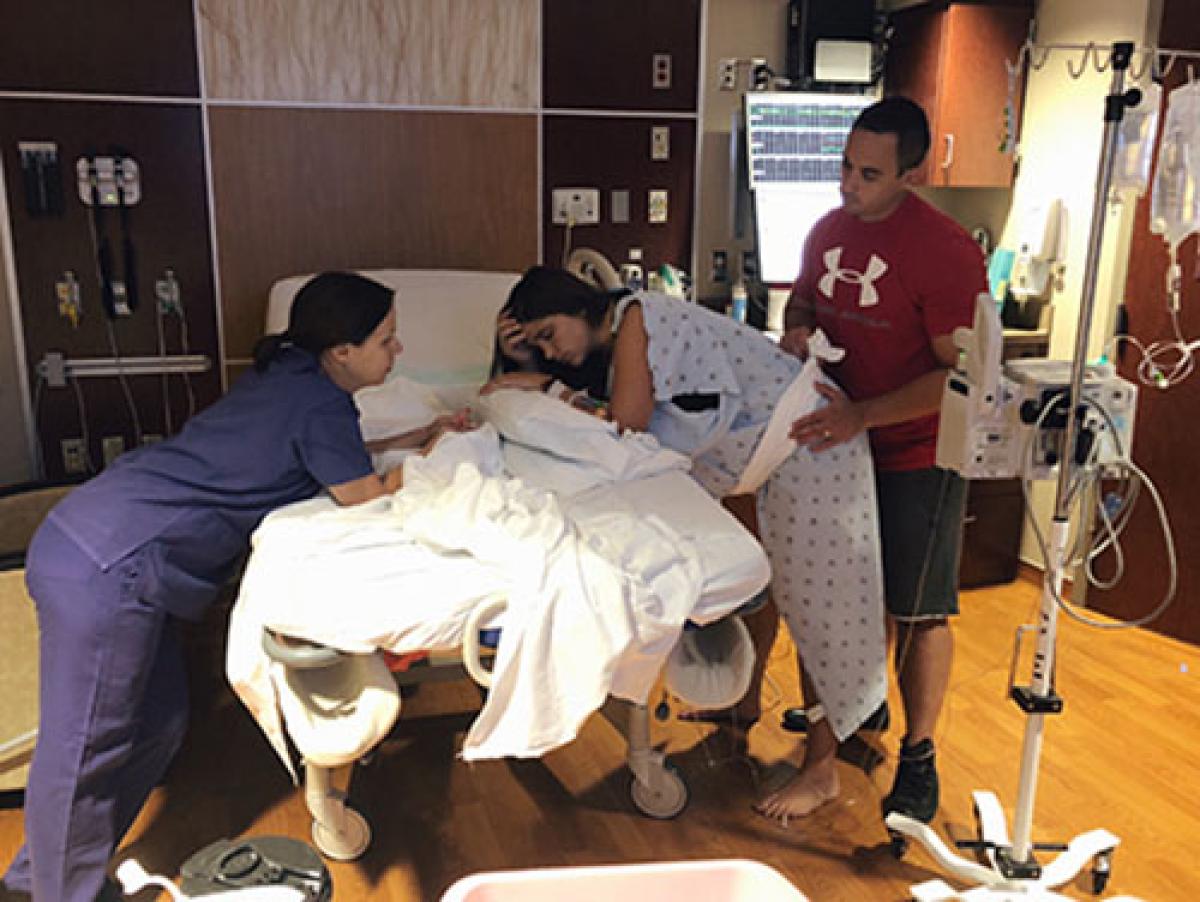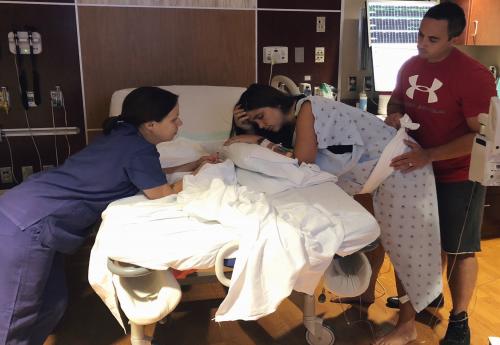Why I Chose a Midwife


Before Evalyn Louisa Schultze even entered the world, she felt the touch of her mother's hand.
Certified nurse midwife April Nelson asked Jessica Schultze if she wanted to feel her daughter's head, then guided Jessica's hand to the baby. Two more pushes and Evalyn was in her mother's arms. Schultze was able to catch the baby herself and immediately cradle the newborn to her chest. Exactly the way she wanted it.
"Having a vaginal birth with no epidural was a dream for me, says Schultze. Her oldest child came after an emergency cesarean section. Her second was a successful vaginal birth after C-section (VBAC) with pain medication. With her third pregnancy, she knew she wanted to be under the care of a midwife.
"They connect on a deeper level. It's a more personal experience," Schultze says. "They just let my body do my thing."
Midwives take pride in that connection. "Our clinic visits tend to be a little longer so we can spend time getting to know our patients, discussing birth plans and providing education," says Nelson. "We also provide one-on-one bedside support during labor."
When asked about the profession, certified nurse midwife Kate Scott describes it as high-touch and low-tech. Midwives help their patients really learn about their anatomy and their capabilities.
"We specialize in low-risk, healthy women having babies and doing gynecologic care as well," Scott explains. "It's about helping you through the lifespan of your childbearing years. And helping you understand your body. If you don't understand how your body works, how will you know when there's a disconnect?"
Midwives are highly trained. They are all registered nurses who then seek out a master's degree. Then they must pass an exam to become board certified. As Scott explains, "All midwives are nurse practitioners, but not all nurse practitioners are midwives."
Call 800.922.0000 to schedule an appointment with one of our midwives or learn more about our midwife program at NebraskaMed.com/Pregnancy-childbirth/Midwives.
One of the reasons Schultze turned to Nebraska Medicine is because she heard how well the team of midwives collaborate with the hospital's Ob-Gyns and maternal-fetal medicine specialists. "The midwives and the doctors work really well together," says Schultze. "It felt really right."
"Some patients are co-managed by the midwives and the physicians," Nelson explains. "The physicians are also available for consultation 24/7 so if an emergency occurred, there would be no delay in intervention."
When her first labor resulted in a C-section, Schultze was disappointed. "After a 40-hour labor and not being able to feel her coming out of me, I felt like I was robbed of the experience."

VBACs are a specialty of the Nebraska Medicine midwives. In 2018, 89.7 percent of the VBACs performed were successful. According to monitoring from the non-profit group, International Cesarean Awareness Network, Inc. (ICAN) of Omaha, that's more than 10 percent higher than any other midwife group in the area. Nelson says VBACs are always special.
"A successful vaginal delivery after a previous cesarean makes a woman feel powerful," she says. "It's amazing to help a woman achieve her goal."
Schultze knows a birth experience like hers isn't for everyone. But she tells everyone Evalyn's arrival was perfect. She wells up with emotion when she recounts that early morning in July. "It's the most amazing experience you can have as a woman," she says. "We are so lucky to be able to give birth."
And Nelson feels lucky to witness that each day. "The best part of my job is getting to be a part of one of the most important days in a family's life," she says.


